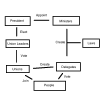The Race to the Skies
The race to invent a heavier than air aircraft exploded with the ending of the German Wars, and the wars that were still raging afterward. Small dirigibles had been used for surveillance since the American Civil War and the Bushwhacker rebellions, giving the army a way to spot enemy positions from long distances. However, the German Wars was quite a dangerous place for these dirigibles, and new weapons, labeled as counter-air artillery, or
ballonkanone in German, became quite deadly to these scouts. This showed many that the need for a faster, more evasive scout needed to be developed, but little work had been done by the time the war was over, although many private entrepreneurs, some with government funding, became the stars of the race to the skies.
An early modified cannon, used for counter-air artillery
The United Kingdom spent large amounts of capital to develop a scouting machine, especially during its time in Vietnam. Hiram Maxim, the creator of the repeating machine gun that now popularly bore its name, was one of the forefront researchers on this topic, but fell short many times. He is credited with the first use of wind tunnels, in order to test aerodynamics on his aircraft, but none in England would be the first to succeed in creating heavier than air flight.
The United States had many serious contenders, but in the aftermath of the Second Mexican-American war, no real military funds were put into these projects. The exception to that rule was Samuel Langley, known as the “Father of American Aeronautics.” He was the Secretary of the Smithsonian Institute under the Cleveland administration, but even after stepping down from the post in 1890 when replaced under the Sherman administration, government funds still were given to him to help him excel. During the Second Mexican-American War, he successfully flew an unpiloted model almost an entire mile, getting the War Departments attention. However, he failed to build on this feat, and when using a piloted model, he could not repeat his successes. His research inspired many other Americans to try to create their own models. In 1902, a group of men working for the Duryea Motor Company in Massachusetts, Arthur Helmsford, Charlie Mattings, and Orville Kolbert, succeeded in flying an aeroplane appropriately named
The Flyer, using a modified internal combustion engine on the dunes of Cape Cod.
The Flyer on Cape Cod in the summer of 1902
Impressive as it was, it wasn’t the first that ever flew, instead the prize went to the son of a rich coffee plantation owner and a French expatriate. The flight took place in 1902, only about two or three months before the Cape Cod flight, but is widely considered the first real test of heavier than air flying. Antonio Santos-Dumont became very wealthy after his fathers death in the early 1890’s due to a heart attack, and used much of that to develop controlled dirigibles, and later, propelled, heavier than air aeroplanes. Gaining popularity as a “sportsmen of the air,” he gained worldwide notoriety. This was one of the reasons that in 1896, when the French Civil War was in its last days, a Fleur by the name of Clement Ader decided to move to Brazil like many other French royalists, in order to possibly meet with this man and work with him. Escaping before the last offensives of the Blanquists, he arrived in Brazil in late 1896. In early 1897, he met Antonio Santos-Dumont, and began to explain his ideas about heavier than air travel. The two soon began engineering powered models, fueled by funds from Santos-Dumont’s share in his late fathers coffee empire, and the very successful Brazilian economy. They finally succeeded in flying their own model, piloted by Santos-Dumont himself on the first flight, Ader on the second. It was recorded by a local newspaper, which proved that they had in fact been the first. A year later, with a more powerful engine, they took off without the help of a catapult, using wheels instead.
Antonio Santos-Dumont flying on the first aeroplane to take off under its own power











